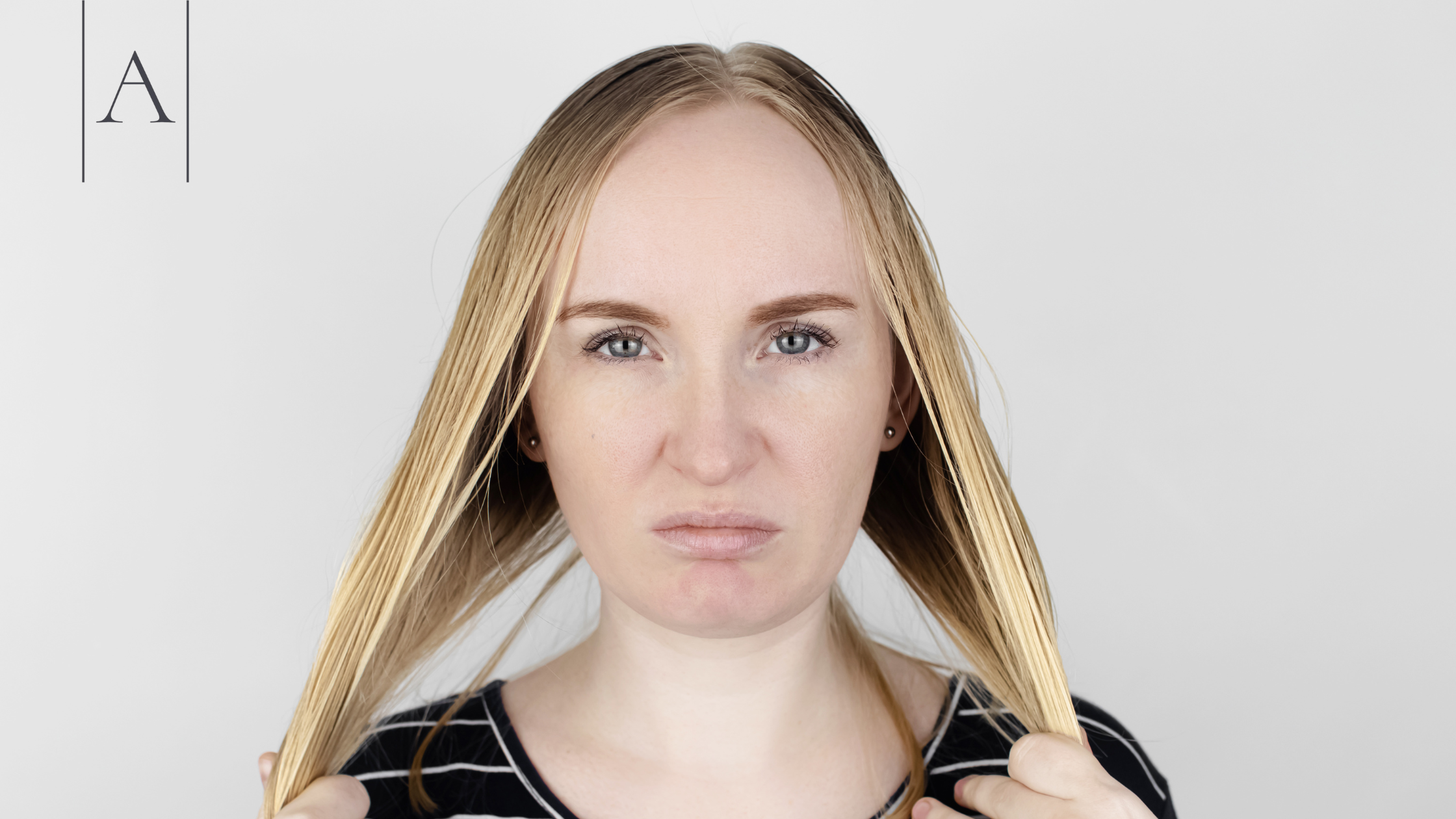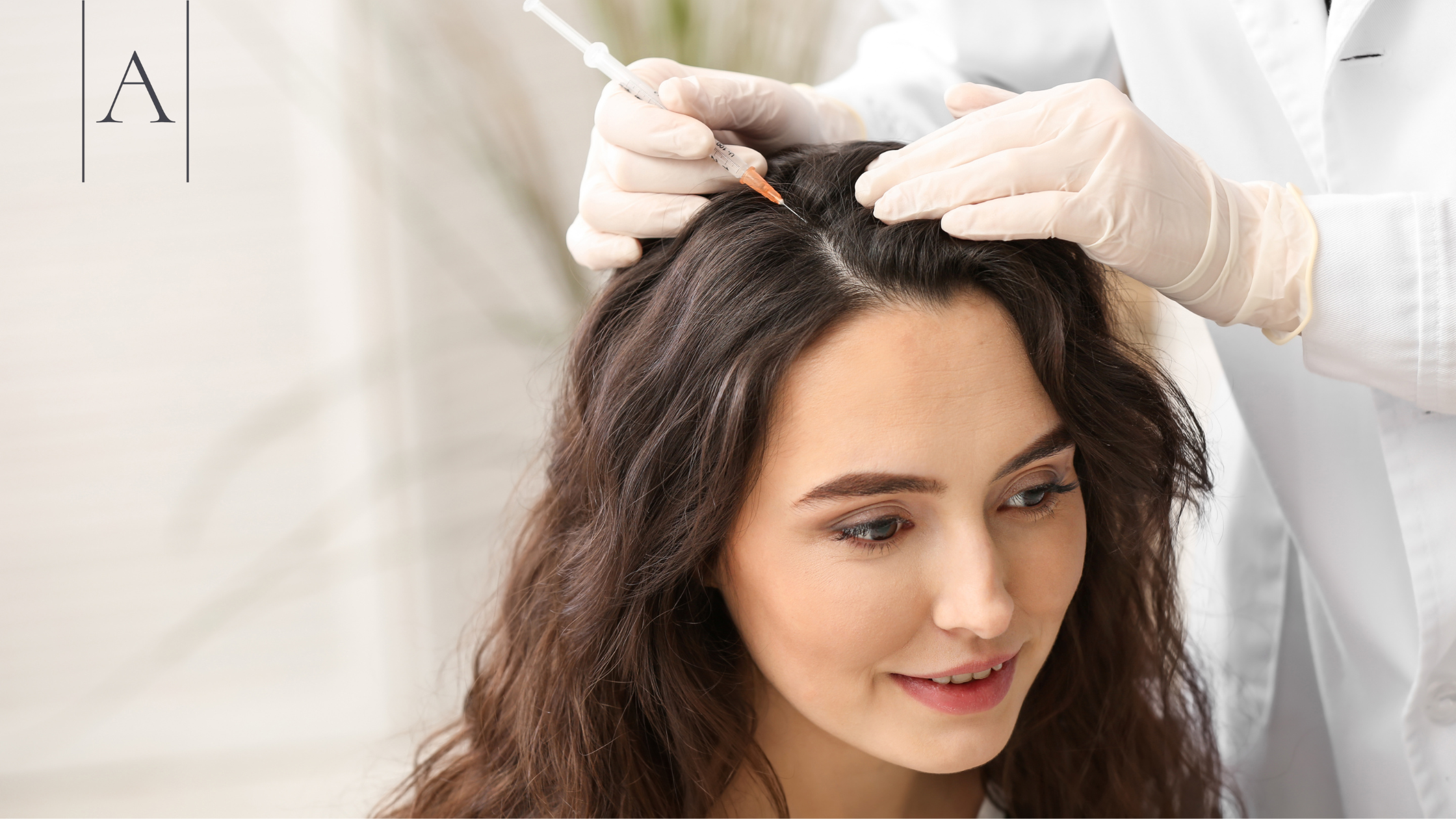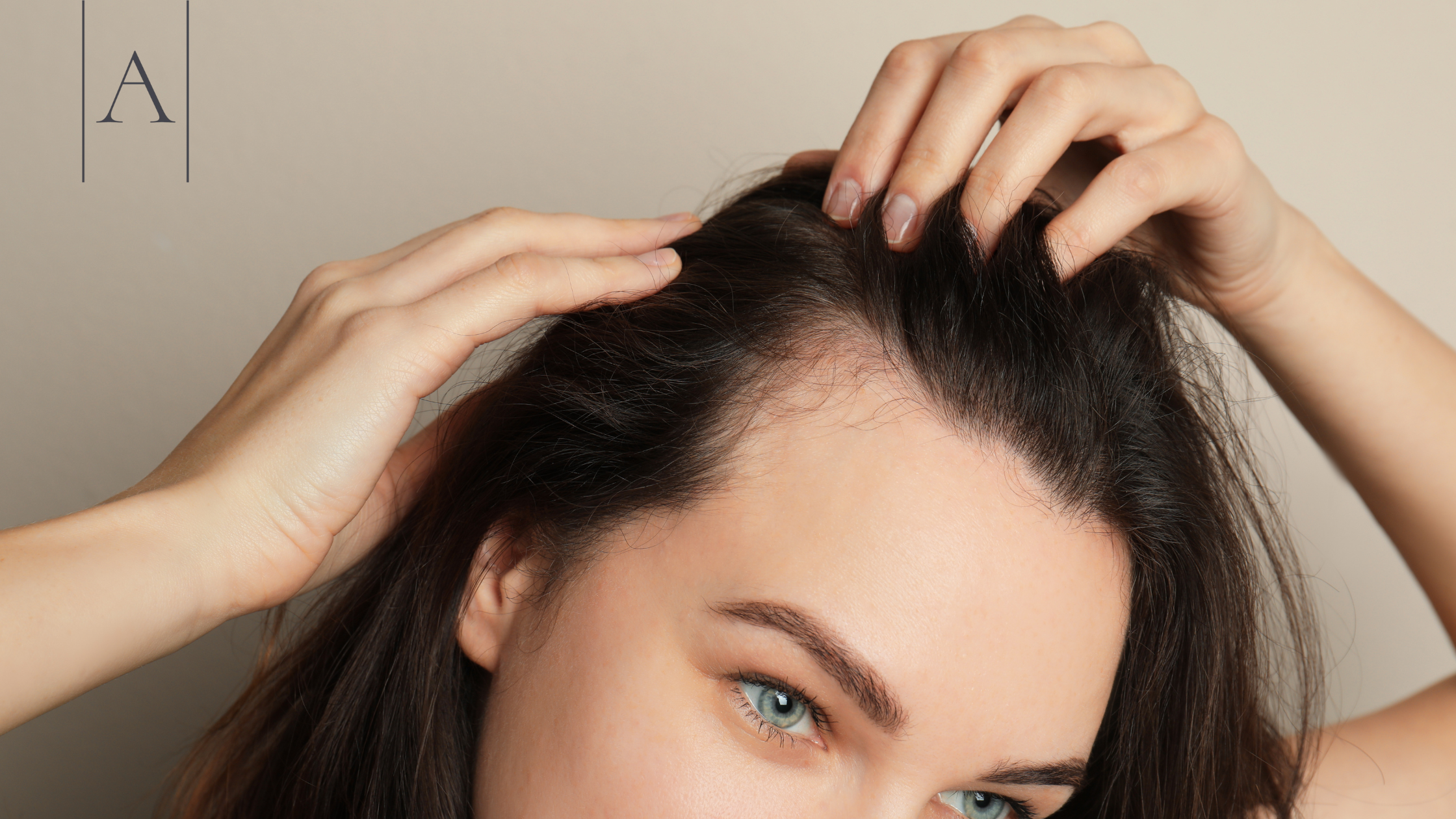
Hair loss is a concern for many women, with nearly half experiencing noticeable thinning by the age of 50. This can be a distressing experience for many women and can greatly affect self-esteem and confidence.
Common Causes of Hair Loss
Understanding the underlying causes and impacts of hair loss can help you make informed decisions about treatment options. Hair loss in women often results from a combination of factors. Here are some of the most common causes:
Genetic Factors
Genetic predisposition plays a significant role in female hair loss. If your family has a history of hair thinning, you might be more susceptible. This condition, known as androgenetic alopecia, affects many women worldwide.
Hormonal Changes
Hormonal imbalances can lead to hair loss. Events such as pregnancy, menopause, and thyroid issues often trigger these changes. These hormonal shifts can disrupt the normal hair growth cycle, leading to noticeable thinning.
Lifestyle and Environmental Factors
Your lifestyle choices and environment can also impact hair health. Stress, poor nutrition, and certain hair styling methods can contribute to hair loss. Additionally, exposure to harsh chemicals or pollutants may damage hair follicles over time.

Psychological Impact of Hair Loss
The emotional effects of hair loss can be profound. It is not just a physical issue; it affects your mental well-being too.
Self-esteem and Confidence
Hair is often linked to identity and self-image. Losing it can lead to a decline in self-esteem and confidence. You might feel less attractive or struggle with your self-worth.
Social and Professional Implications
Hair loss can also affect your social and professional life. You may feel self-conscious in social settings or worry about others' perceptions at work. This anxiety can hinder your interactions and performance.
Understanding these aspects of hair loss is crucial. It empowers you to seek solutions that not only address the physical symptoms but also support your emotional well-being. Considering options such as a hair transplant can offer a comprehensive approach to regaining both your hair and confidence.

What is a Hair Transplant?
Hair transplants offer a permanent and natural-looking remedy to hair loss and involve moving hair follicles from one part of your body to the thinning areas.
Understanding the procedures involved and their suitability can help you make an informed decision.Two main techniques are commonly used:
Follicular Unit Transplantation (FUT)
FUT involves removing a strip of skin with hair follicles from a donor site, usually the back of your head. Surgeons then divide this strip into smaller units and transplant them to the thinning areas. This method is effective for covering larger areas of hair loss.
Follicular Unit Extraction (FUE)
FUE is a more advanced technique where individual hair follicles are extracted directly from the donor area. FUE is a more advanced technique. This method leaves minimal scarring and allows for a quicker recovery. Many women prefer FUE because it enables them to keep their hair long, hiding recovery areas.
However, not every woman is an ideal candidate for a hair transplant. Evaluating your specific situation is crucial.
Your eligibility depends on several factors:
-
Cause of Hair Loss: Understanding why you are losing hair is essential. Genetic factors, hormonal changes, or lifestyle choices might be responsible.
-
Extent of Hair Loss: The amount of hair you have lost will influence the procedure's success.
-
Health of Remaining Hair: Healthy donor hair is vital for a successful transplant.
-
Likelihood of Further Hair Loss: Future hair loss can affect the overall outcome.
Hair transplants for women have a high success rate. You can expect a natural appearance and a permanent solution to hair loss. Advances in techniques like FUE have made achieving successful results more accessible. By choosing the right procedure, you can regain both your hair and confidence.

Benefits and Risks of Hair Transplants for Women
Considering a hair transplant can transform your life. Understanding the benefits and risks can help you make an informed decision.
Benefits
A hair transplant provides a natural result and look. Surgeons use your own hair follicles, ensuring the transplanted hair blends seamlessly with your existing hair. Unlike temporary solutions, this procedure provides a permanent fix to hair thinning. You can enjoy a fuller head of hair without the need for ongoing treatments. Many women have found this to be a life-changing experience, restoring both their hair and confidence.
Potential Risks
As with any surgical procedure, hair transplants carry some risks. You might experience minor complications such as swelling or infection. However, choosing a reputable clinic with experienced surgeons can minimise these risks. Always ensure you follow post-operative instructions carefully as this is crucial to ensure successful healing. This includes avoiding strenuous activities and protecting the transplanted area. Adhering to these instructions will help you achieve the best possible results.
Why Choose Asthetica for Your Hair Transplant?
Choosing the right clinic for your hair transplant is crucial. Asthetica partners with internationally accredited hospitals, ensuring the highest standards of care. Asthetica offers more than just medical procedures, they provide a comprehensive experience tailored to your needs. From initial consultation to post-operative care, their dedicated team supports you every step of the way. You can focus on your recovery while they handle the logistics.
Hair transplant offer women a solution to hair loss, enhancing both appearance and confidence. Consider Asthetica for your journey, get in touch with us.